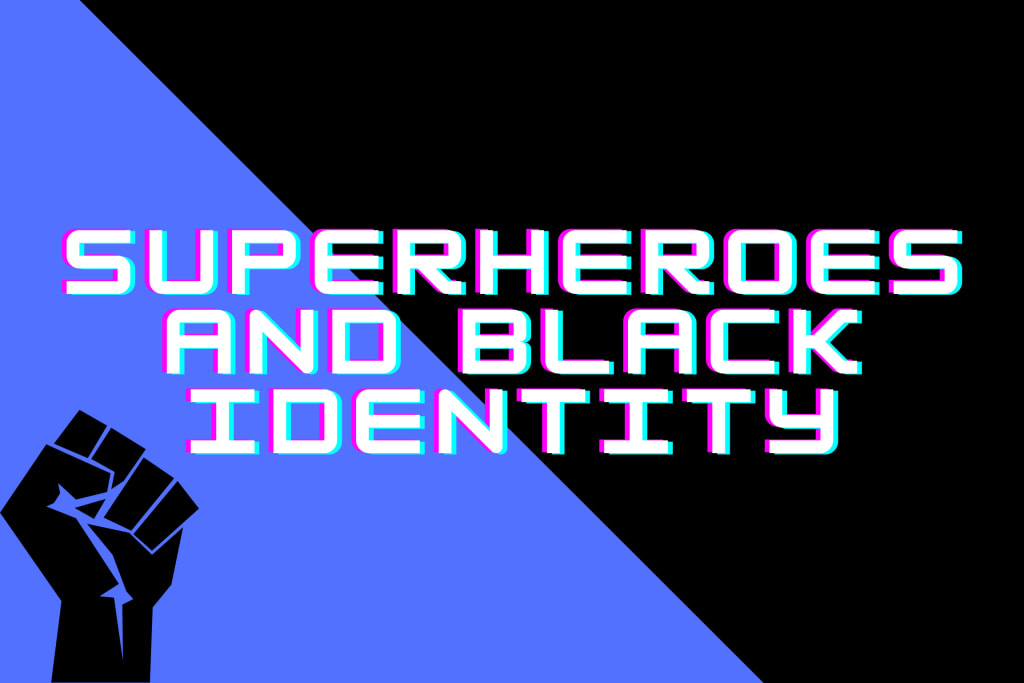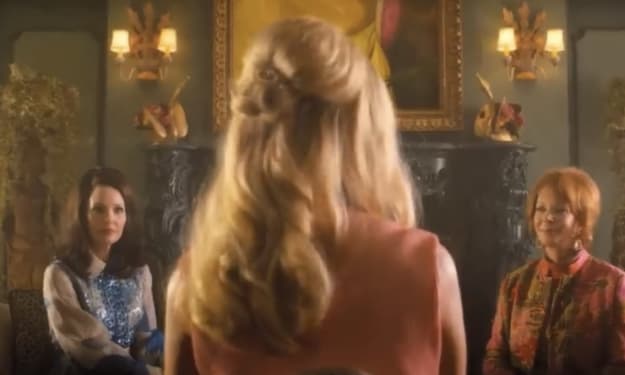Superheroes and Black Identity
An exploration into black superheroes

WARNING: This article will contain spoilers for both DC and Marvel content. If you're still on season one of The CW's Arrow, or if you've only just started watching the Marvel movies in order, then turn away! Come back when you've caught up, then appreciate this article when you already know about all the spoilers!
Whew! Now I've covered my ass and avoided being called a blabbermouth for giving out spoilers, I can delve into the world of superheroes and black identity.
For those who don't know, I was born in 1999 and have grown up loving all things Marvel and DC, and anything superhero related. The Incredibles? Loved it. The Adventures of Sharkboy and Lavagirl (in 3D)?! I was all over that sh*t as a kid!
Now that I'm older, and my love for superheroes has also turned into a love for media studies and examining the superhero genre. I've done two articles already based on superheroes and the female identity - which I'll link at the bottom of the article - but I thought it was finally time to look into superheroes and the black identity.
Back in 1993, the New York Times released a statement in regards to superheroes saying "younger people are becoming more receptive to the world's diversity and are more willing to accept comic-book heroes outside their own culture" and that is still true to this day.
Although Marvel's Black Panther movie was a pivotal moment for the black community, black superheroes have existed since the forties. For Marvel, Black Panther was created by Stan Lee and Jack Kirby back in 1966 and first featured within the Fantastic Four comic #52. However, there was someone before Stan Lee who changed the game for superheroes and the black demographic...
In 1947, black journalist Orrin C Evans created a comic book that was written and drawn solely by black creators. "All-Negro Comics" only had one issue but the comic was created to inspire black people to take pride in their African heritage. A second issue was created, but some speculate Evans was stopped by prejudiced distributors who prevented Evans from purchasing the newsprint required.
This story of a one issue comic, created over seventy years ago, shows just how important the creation of black superheroes was, and continues to be. Before any DC or Marvel creators has the chance to put out black superheroes onto our screens, Robert Townsend did it first by writing, directing, producing and starring in one of the first superhero films to feature a black superhero: The Meteor Man.
The Meteor Man is a comedy movie that's pretty corny, yet it touches on themes of community justice and pride and that is what makes the movie so important. It gave the black demographic a refreshing view on superheroes and created such a positive view on black identity within the superhero genre.
Since then, the superhero genre has embraced black identity and continued the positive representations.
Within the DC Universe, black superheroes have played a large role within The CW's television shows such as Flash, Arrow and Legends of Tomorrow. To list a few out of many, there is: Black Lightning, John Diggle/Spartan, Firestorm, Wally West, Amaya Jiwe and Nora West-Allen.
If you're a fan of the comics, or the shows, then you'll understand what is so important about these characters. Not only does it give the black demographic characters to look up to and idolise, it also reminds them that superheroes and black identity can go hand in hand.
All of these characters mentioned are just as strong and powerful and their white counterparts, and they're not used as the "token" black person. For example, Black Lightning was one of DC's first black superheroes and is the first black superhero to have their own television show within the DC Universe.
John Diggle in particular has one of the best story lines within this universe. He goes from a white person's bodyguard, to the white person's best friend and superhero sidekick, to being the Green Arrow himself, to becoming a Green Lantern. This character development is so important in highlighting the positive representation of black identity. This character goes from a side-character to a main-character, allowing the black audience to feel confident and less inferior than that of the white audience, who get to experience viewing superheroes of their own culture and race all of the time.
On the other side of the superhero genre, we have the Marvel Cinematic Universe.
Right off the bat with the first MCU movie we meet Nick Fury. Appearing in Iron Man back in 2008, Nick Fury is introduced as the Director of S.H.I.E.L.D with a dope eye patch and portrayed by one of the coolest black actors ever. This character possesses leadership, strength, intelligent, wit and so much more. He is an amazing influence for the young black demographic, and if there is any character to feel inspired by, Nick Fury is the one.
As well as Nick Fury, Marvel has a whole bunch of black superheroes that we all know and love. Here is a quickfire round of three black superheroes that I love...
Miles Morales. The introduction to a black Spider-Man within Into The Spider-Verse was truly incredible. I loved the film and I think that with the speculation of the MCU introducing the Young Avengers into the mix, it will be really interesting to see Morales's story grow. So many viewers, especially the young black audience, were happy to see a black Spider-Man, yet some are not convinced. Some say yes, Miles is a Spider-Man but not the Spider-Man (aka Peter Parker) and therefore the gap between white and black superheroes will never be bridged. Just some food for thought.
Sam Wilson. The Falcon first made appearance in the Captain America: The Winter Soldier movie, and first made appearance in the comics in 1969. I love him. The banter, the powers and (although this is only portrayed in the comics) the telepathic link with birds creates such a unique character. After watching Endgame, people now know that when Steve Rogers steps down, Sam Wilson steps up. I am patiently awaiting The Falcon and Winter Soldier release date so I can see more of Sam's take on Captain America.
Monica Rambeau. Although introduced as a child in Captain Marvel, we have recently witnessed Monica Rambeau and her newfound powers in WandaVision. Not only does this character create a positive representation for the black female demographic, she also has such an interesting storyline. At the end of WandaVision we see her talking to a Skrull as Nick Fury wants her to pay him a visit. No doubt is this a setup for the show Secret Invasion, and I'm excited to see what her powers can do.
Now, I could go on about every single black superhero I know, but there is one other superhero that has been an inspiration since I was a kid...
Frozone.
That dude is cool, and I bet so many black kids watching that for the first time said the exact thing. But, as an adult I realise The Incredible's holds a deeper meaning. Set in the 1960's, Frozone plays a critical character in a mainly white film in which those with powers are banned and deemed illegal by the government. Not only does this story center around a white family facing these problems, you get to thinking that Frozone could probably tell Mr Incredible a thing or two about people being discriminatory due to who you are. But, hey I'm probably getting too far into it...
All in all, it's great to see the superhero genre and black identity finally being synonymous. I remember watching Black Panther and I was glad to see the diversity it held - after all it did earn $1.3 billion worldwide, showing just how important black superheroes are to the black demographic, and the world. I simply cannot wait to see what the future holds for black superheroes!
-
If you enjoyed this article then make sure to leave this article a little heart to show your love! Tips are super appreciated (aha, get it?!) and they will help fund my Disney+ subscription, because quite frankly I didn't need Starz because all I care about are the superheroes...but oh well!
If you have anything else to add feel free to DM me @leighooper on Twitter or Instagram, and even pop me a follow if you're interested in the author behind the article!
Here's some other superhero related articles you might like:
Superheroes and the Female Identity
WandaVision and the female Identity
Thanks for reading, see you soon!
About the Creator
Leigh Hooper
A writer in her twenties with a head full of ideas and a room full of books✨
My Instagram handle is: @leighooper






Comments
There are no comments for this story
Be the first to respond and start the conversation.